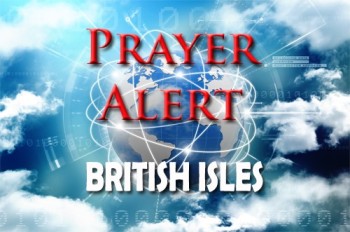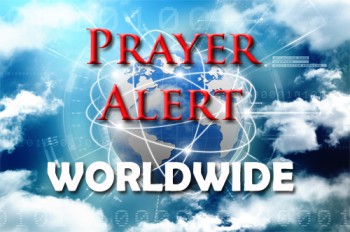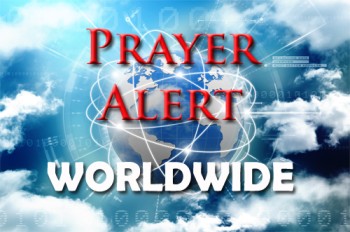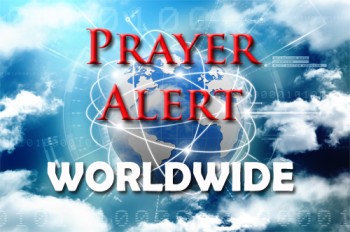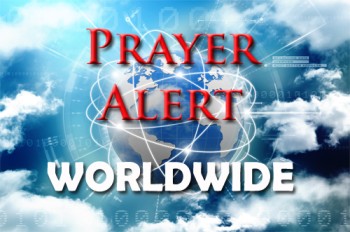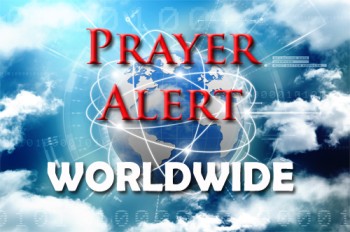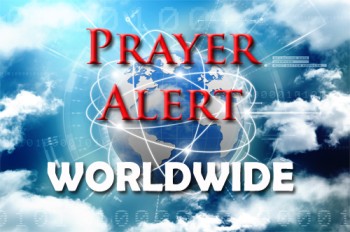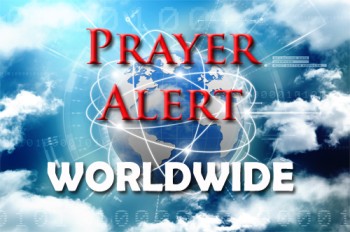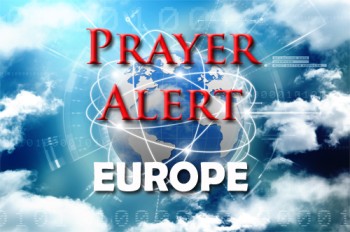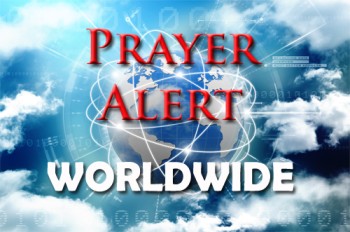Displaying items by tag: Hezbollah
Counter-terrorism police investigating Kneecap videos
Counter-terrorist police are investigating videos of Irish-language rap trio Kneecap, recorded at gigs in 2023 and 2024. The videos appear to show band members encouraging violence against British MPs and expressing support for proscribed terror groups Hamas and Hezbollah. Kneecap has denied inciting violence, saying the clips were taken out of context, and offered apologies to the families of murdered MPs David Amess and Jo Cox. The controversy, which follows backlash from the band’s Gaza-related statements at a concert in the USA, has led to sponsorship and booking losses. Major artists have signed a statement supporting Kneecap, opposing what they call political censorship and suppression of artistic freedom. Kneecap, known for provocative lyrics and nationalist themes, rose to prominence in Ireland and were the subject of a Bafta-winning film featuring Michael Fassbender.
Lebanon / Israel: second airstrike on Beirut in four days
For the second time in four days, Israel’s military have struck a Hezbollah target in Beirut. The precision airstrike, carried out by the air force, killed Hassan Ali Mahmoud Bdeir, a senior Hezbollah operative. According to Israel, he was orchestrating an imminent terror attack against civilians. The strike hit the top floors of an apartment building, killing at least three and wounding seven. Lebanese officials condemned the attack, calling it a violation of UN Resolution 1701 and an assault on Lebanese sovereignty. The president vowed to rally international support, while Hezbollah’s leadership placed responsibility on Lebanon’s government to respond diplomatically. The USA reiterated its support for Israel, claiming that it was operating in response to rocket attacks. Although Hezbollah denied launching the rockets, authorities have arrested thirteen suspects. The targeted strikes and political fallout highlight deepening regional instability and the increasing entanglement of Iranian-backed terror groups.
Lebanon: Israel / Hezbollah ceasefire comes into effect
A ceasefire between Israel and Hezbollah, brokered by the USA, began on 27 November, with thousands of displaced people cautiously returning to southern Lebanon. The truce calls for a sixty-day withdrawal period for Israeli forces and Hezbollah fighters from southern Lebanon, with the Lebanese army deploying extra troops in the region to oversee the ceasefire and reclaim control. However, Israeli officials have warned that any breaches by Hezbollah would prompt immediate military action. Hezbollah claimed ‘victory’ in its first statement since the ceasefire, vowing readiness to confront Israeli actions. The conflict, which began in October 2023 but has escalated since September, has devastated Lebanon, with over 3,800 killed and nearly 16,000 injured. Caretaker prime minister Najib Mikati has called for unity after what he said was the ‘most cruel phase in Lebanese history’. For a view on how this truce might affect the conflict in Gaza, see
Lebanon: Israeli airstrikes alongside ground offensive
An Israeli airstrike on central Beirut, targeting a building connected to Hezbollah’s health unit, has killed at least six people and wounded seven more. On 28 September another airstrike on the city resulted in the death of Hezbollah's leader, Hassan Nasrallah, and Israel has now launched a ‘limited’ ground offensive in southern Lebanon against Hezbollah. The two forces are currently engaged in fierce combat, with casualties on both sides. Caretaker prime minister Najib Mikati has said that about 1.2 million Lebanese have been displaced by Israeli attacks. Meanwhile, on 1 October Iran launched 180 missiles against Jerusalem, with remarkably few casualties, and Yemen’s Houthis and armed groups in Iraq have launched attacks in the region in support of Hamas in its war with Israel in Gaza.
Israel / Hezbollah: conflict continues
Following extensive air strikes targeting Hezbollah, Lt Gen Herzi Halevi, Israel's military chief, has indicated that a ground invasion into Hezbollah-controlled territory in Lebanon might be imminent. The air strikes, which hit Hezbollah’s intelligence directorate and weapons stores, killed over fifty people, according to Lebanon's health minister. Hezbollah escalated the conflict by firing a missile toward Tel Aviv, the first such strike by the group on the city, which Israel intercepted. Cross-border fighting has continued, with Hezbollah launching more rockets and Israel responding with over 280 airstrikes on Hezbollah targets. Since Monday, more than six hundred people have been killed in Lebanon, and 90,000 have been displaced. There is no end in sight to the fighting, which is linked to Hezbollah’s support for Hamas in Gaza. Breaking news: Benjamin Netanyahu has flown to New York to address the UN General Assembly on 27 September. He has resolutely turned down the call by a number of countries for an immediate 21-day ceasefire. See
Lebanon: exploding Hezbollah pagers and hand-held radios
A series of explosions rocked southern Lebanon on 18 September, as hand-held radios used by Hezbollah were remotely detonated, marking the deadliest day since cross-border fighting with Israel began nearly a year ago. The explosions killed at least twenty people and injured over 450. On the previous day many Hezbollah pagers exploded, killing twelve and injuring many more. Israeli officials have not confirmed involvement, though security sources link the attacks to Mossad. Hezbollah called it the worst security breach in its history. These events are fuelling fears of a wider Middle East war which could drag in the United States and Iran: a full-scale war could devastate Lebanon. Both sides have engaged in fighting along the border since the Gaza conflict erupted in October 2023. Hezbollah has vowed further retaliation, and tensions remain high. BREAKING NEWS: Israel launched a series of air strikes on southern Lebanon on 19 September, while Hezbollah’s leader Hassan Nasrallah said that this week’s incidents ‘could be called a declaration of war’. See
Israel / Lebanon: UN peacekeepers ‘more crucial than ever’
UN peacekeepers on the Israeli-Lebanese border are now more crucial than ever, according to their chief Jean-Pierre Lacroix. Cross-border fire between Israel and Hezbollah has increased, raising fears of a broader regional conflict. This concern grew following the recent killings of a top Hamas leader in Iran and a Hezbollah commander in Beirut. Lacroix emphasised UNIFIL's vital role as the only liaison between Israeli and Lebanese sides, helping to prevent misunderstandings and unintended escalations. UNIFIL, with 10,000 troops in southern Lebanon, conducts regular patrols and facilitates humanitarian efforts. Lacroix stated that peacekeepers would remain unless their mission becomes untenable or security threats become severe. He said a Gaza ceasefire is key to de-escalation on the Israeli-Lebanon border, to prevent further casualties and destruction. Meanwhile, several European countries have urged their nationals to leave Lebanon because of the increased threat of war: see
Top Hamas leader killed
On 31 July Hamas political leader Ismail Haniyeh, along with his bodyguard, was killed in an airstrike in Iran, an act labelled a ‘severe escalation’ by the Palestinian terror group. His death came hours after he attended a swearing-in ceremony for new president Masoud Pezeshkian. Pezeshkian vowed to defend Iran's integrity and retaliate against the perpetrators. This assassination, attributed to Israel, follows the killing of Hezbollah’s top military leader in Beirut; Israel claimed that he was responsible for a rocket attack on 27 July which killed twelve people, mainly children. Haniyeh, based in Qatar and the face of Hamas’ international diplomacy, was the highest-ranking official killed since the conflict began; his three sons have also been killed.
Cyprus / Israel / Lebanon: Hezbollah leader threatens wider conflict
Hezbollah leader Sayyed Hassan Nasrallah has warned that no place in Israel would be safe if a full-scale war erupts between the two foes, also threatening Cyprus and other Mediterranean regions. Hezbollah has released drone footage of sensitive Israeli military sites; Nasrallah says that it has a ‘bank of targets’ for precision strikes, and Israel must prepare for attacks by land, air, and sea. He also threatened Cyprus, accusing it of aiding Israel with its airports and bases for military exercises. There was no immediate response from Cypriot authorities; Cyprus has historically allowed Israel to use its airspace for drills, but not its land or bases. In another development, Benjamin Netanyahu has dissolved his war cabinet after two of his opponents resigned from it: see
Hezbollah fires hundreds of rockets after a senior commander is killed
Hundreds of rockets were fired from Lebanon towards northern Israel on 12 June, hours after an Israeli airstrike which killed a senior Hezbollah commander. The Israeli military reported detecting about 215 projectiles, with some intercepted and several causing fires. The death of the commander, Hajj Abu Taleb, has intensified clashes along the border, with Hezbollah using more advanced weaponry and Israeli airstrikes penetrating deeper into Lebanon. Over 400 people have been killed in Israeli airstrikes in Lebanon, including more than seventy civilians. On the Israeli side, fifteen soldiers and ten civilians have died since the conflict began. Meanwhile, Antony Blinken stated that mediators are working to finalise a cease-fire deal after Hamas proposed amendments to a US-backed proposal which aims to ensure a permanent ceasefire and the complete withdrawal of Israeli troops from Gaza. The proposal, announced by Joe Biden, includes these provisions, but Hamas remains sceptical about Israel’s commitment to implementing the terms.
